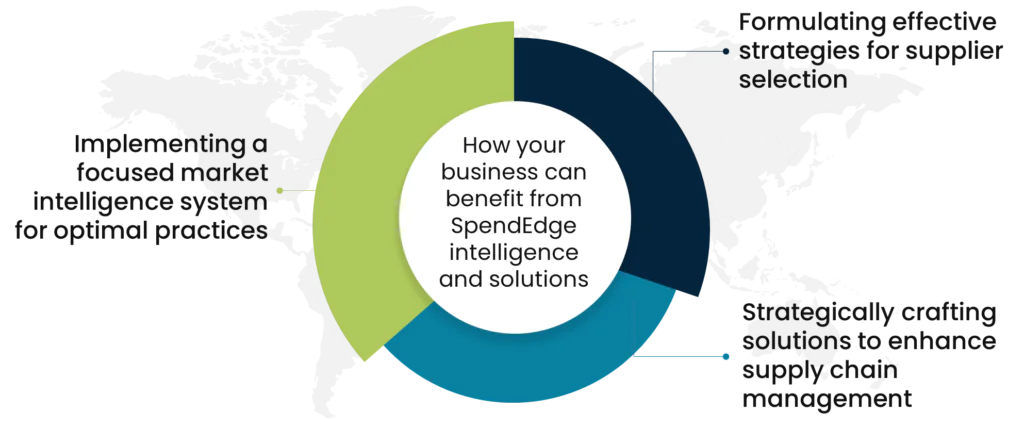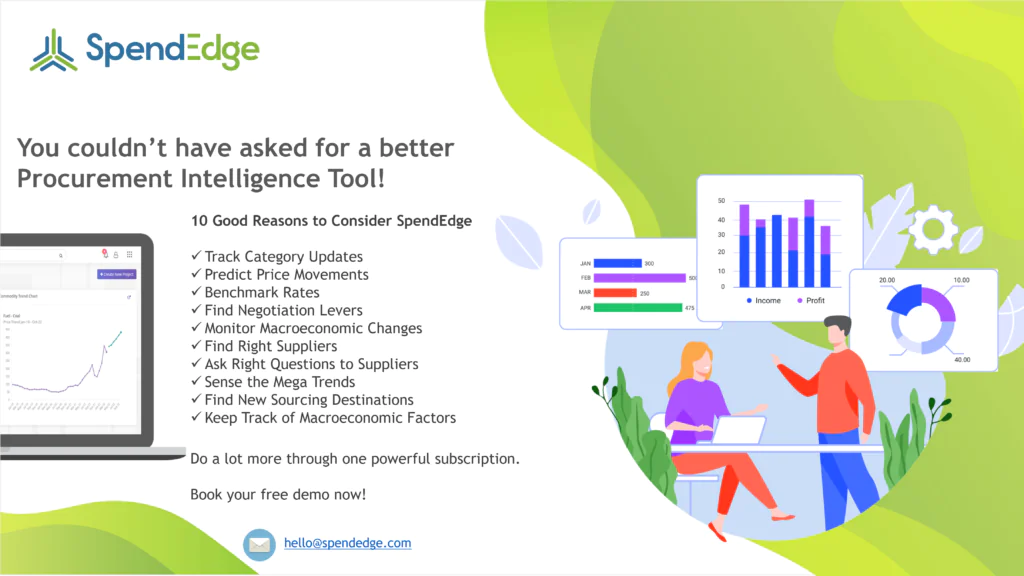By: George Mathew
In the dynamic landscape of the supply chain sector, structured data management is paramount. It facilitates transparency, inventory optimization, accurate demand forecasting, supplier management, risk mitigation, cost reduction, regulatory compliance, and continuous improvement. Leveraging data efficiently empowers organizations to enhance operational efficiency, minimize disruptions, and stay competitive in rapidly evolving markets.
In the absence of proper data management, businesses encounter various challenges, including inaccurate forecasting, inefficient inventory management, supplier relationship issues, increased lead times, quality control problems, logistical inefficiencies, compliance risks, and a lack of strategic insights. These issues can lead to higher costs, operational disruptions, and decreased competitiveness. Effective data management is essential for optimizing the supply process, reducing risks, and enhancing overall performance in today’s competitive business landscape.
To have a clear understanding of all our services at SpendEdge
Building expertise in supply chain data management:
Isolated data storage mechanism
In data conversations, the focus often shifts to Master Data Management (MDM), which revolves around a data control tower essential for measurement, analytics, and governance. However, the prevalent issue of data silos presents a significant obstacle, particularly in the supply chain industry. Compiling data from diverse sources poses challenges in normalization and consolidation, impeding efforts to achieve quality and consistency. Collaboration with logistics service providers (LSPs) is vital, despite their primary focus on shipment execution rather than data governance. To overcome these hurdles, seamless integration of technology stacks across various systems, including Warehouse Management System (WMS), Transportation Management System (TMS), and Enterprise Resource Planning (ERP), is imperative for realizing an improved data-driven approach to supply chain execution.
Good data vs. bad data strategy
In supply chain management, distinguishing good data from bad data is critical for informed decision-making. Good data, characterized by accuracy and relevance, enables organizations to optimize operations and respond effectively to market changes. Conversely, bad data, such as inaccuracies or outdated information, can lead to errors and inefficiencies. Effective data collection from various sources, regular validation, and the use of data quality metrics are essential for ensuring data reliability. Implementing master data management (MDM) and data governance practices further enhances data consistency and integrity across the supply chain, ultimately improving overall efficiency and performance.
Role of Artificial Intelligence (AI) in supply chain
In today’s data-driven landscape, the effectiveness of AI and ML applications is contingent upon the quality and relevance of the data they leverage. While ML techniques can aid in cleaning and normalizing data, human involvement remains crucial for handling complexity and uncertainty. Establishing robust data governance processes, including regular updates and adherence to strong rules, is essential for reliable decision-making. Companies can differentiate themselves by prioritizing data quality and taking proactive steps to improve their data practices, ultimately unlocking the full potential of AI-driven solutions.
Data Visualization for Actionable Insights:
In the realm of supply chain data management, the ability to transform raw data into actionable insights is paramount. Data visualization techniques play a crucial role in this process, enabling stakeholders to interpret complex datasets and identify trends, patterns, and outliers with ease. By presenting information in a visually intuitive format, such as charts, graphs, and dashboards, organizations can make informed decisions quickly and effectively. Furthermore, interactive visualization tools empower users to drill down into specific data points, facilitating deeper analysis and driving continuous improvement across the supply chain.
Predictive Analytics for Forecasting and Optimization:
Predictive analytics holds immense potential for revolutionizing supply chain operations by forecasting demand, optimizing inventory levels, and mitigating risks. Leveraging historical data and advanced algorithms, predictive models can anticipate future trends and events, allowing organizations to proactively adjust their strategies and resources accordingly. From predicting customer demand fluctuations to optimizing production schedules and supply routes, predictive analytics empowers businesses to stay ahead of the curve and deliver superior customer experiences while maximizing operational efficiency and profitability.
Blockchain Technology for Enhanced Transparency and Traceability:
Blockchain technology offers a promising solution for enhancing transparency and traceability throughout the supply chain. By providing an immutable and decentralized ledger, blockchain enables secure and transparent recording of transactions, movements, and ownership transfers across the entire supply chain ecosystem. This level of transparency not only enhances trust among stakeholders but also facilitates efficient tracking and tracing of products from their origin to the end consumer. From ensuring product authenticity and compliance with regulatory standards to combating counterfeit goods and improving sustainability practices, blockchain technology has the potential to revolutionize supply chain management in the digital age.
How SpendEdge can aid businesses in enhancing supply chains through optimized data flow:

Formulating effective strategies for supplier selection:
Our sourcing advisors are pivotal in guiding businesses through intricate supply chain challenges. Our specialists aid organizations in selecting suitable vendors and smoothly incorporating their solutions into current infrastructure. These services cover vendor assessment, negotiation, implementation, quality assurance, and continuous support. Furthermore, our experts provide adept assistance with needs assessment, market research, vendor evaluation, strategy development, and risk management, guaranteeing organizations make informed and economical choices.
Strategically crafting solutions to enhance supply chain management:
Our experts initiate the process by gaining an in-depth understanding of the client’s supply chain procedures, obstacles, and objectives through interviews and analysis sessions. They assess current technology, explore market solutions, and choose options that closely match the client’s requirements. Crafting a technology integration strategy, they prepare for customization and system integration. Vendors are approached, proposals scrutinized, and an adoption plan is devised, incorporating training and stakeholder engagement strategies. Resistance to change is tackled by highlighting benefits, and success metrics are defined for continual enhancement.
Implementing a focused market intelligence system for optimal practices:
Our advisors regularly conduct benchmarking exercises to compare client’s practices with those of industry peers and competitors, aiming to pinpoint emerging best practices. They consistently assess and improve sourcing practices by keeping up-to-date with the latest industry trends and innovations. Our approach entails implementing a structured system to stay informed about competitors’ advancements in sourcing, including activities such as market research and engagement with industry experts.
Success Story: How we helped a leading CPG company improve supply chain efficiency through data flow optimization:
Our client is a prominent Consumer Packaged Goods (CPG) company headquartered in the US, renowned for its expertise in manufacturing and marketing a wide array of products.
The client faced challenges in optimizing their supply chain and sought to enhance supply chain by perfecting data flow.
Our experts at SpendEdge conducted a comprehensive market analysis, employing a proprietary scoring system to evaluate potential suppliers based on quality, reliability, technology alignment. Recommendations were made after considering these factors. Furthermore, collaborating with the client’s IT team, our experts aligned technology solutions with supply chain requirements. Additionally, a detailed analysis of competitors’ supply chain strategies identified best practices, allowing them to align client’s strategy for competitiveness and innovation in the CPG industry.
Our solutions allowed the client to improve data flow which led to reduction in lead times and enhanced decision-making, as well as reduced costs.
Conclusion
In conclusion, perfecting data flow in the supply chain is essential for organizations seeking to thrive in today’s competitive business landscape. Effective data management not only facilitates transparency, efficiency, and risk mitigation but also enables organizations to leverage insights for strategic decision-making and continuous improvement. By embracing strategic approaches such as leveraging technology integration, prioritizing data quality, and harnessing advanced analytics and emerging technologies like blockchain, organizations can unlock the full potential of their supply chains.

Contact us now to solve your procurement problems!
Author’s Details
George Mathew
Associate Vice President, Sourcing and Procurement Intelligence
George is a procurement specialist at Infiniti Research and provides advisory services to clients across the pharmaceutical, CPG & FMCG, energy, and automotive sectors. He specializes in the procurement areas of industry benchmarking, cost modeling, rate card benchmarking, negotiation advisory, and supplier intelligence.




